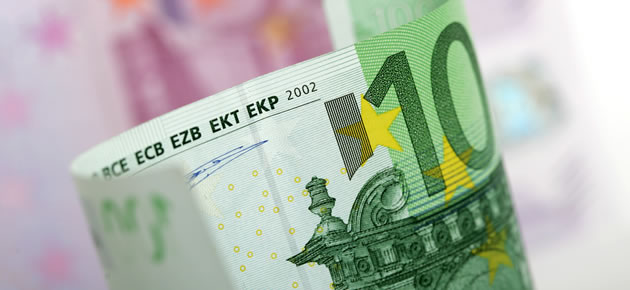The Euro (EUR) managed to regain some lost ground against the Pound (GBP) on Friday as investors continued to be spooked by the Scottish Independence vote due to be held on September 18.
Sterling is on track to make its worst week in a year as investors and speculators continue to hedge their bets that the currency will continue to become increasingly volatile ahead of the vote.
Also weighing upon the Pound was a report, which showed that half of the UK population now think that inflation will rise sharply over the next year.
People expect the consumer prices index will be 2.8% in a year’s time, up from 2.5% in May.
The jitters over a possible ‘Scotchexit’ allowed the Euro to shrug off concerns generated by a report, which showed that the 18-member Eurozone stagnated in the second quarter.
Data released by the Luxembourg based European Statistic Office showed that the Eurozone’s Gross Domestic Product (GDP) was unchanged from the 0.2% recorded in the first quarter of 2014.
Falling investment and geopolitical issues caused the region’s economy to stagnate.
Eurostat reported that GDP in the second quarter was flat at 0.0%. The figure was forecast by economists. According to the statistics agency the best performing economies were; Malta +1.3%, Latvia +1.0%, Lithuania, Hungary and the UK with +0.8%. The worst performing economies were; Romania -1.0%, Denmark and Cyprus -0.3%, Germany and Italy both saw contractions of -0.2%.
‘Already lacklustre Eurozone economic activity seemingly suffered in the second quarter as heightened global geopolitical tensions, particularly the Ukraine/Russia crisis weighed down upon sentiment’ said Howard Archer from IHS Global Insight.
Following Thursday’s sharp decline because of the European Central Bank (ECB) cutting interest rates to a new record low of 0.05% the Euro saw some support in Friday’s session from traders seeking deals and a positive report from Germany, which kept hopes for a Eurozone recovery alive.
The ECB also cut its economic forecast for growth this year to 0.9% down from the 1.0% previously stated.
Early in the session, a report out of the Eurozone’s largest economy showed that Industrial Production rallied strongly in July. Production increased by 1.9% on a month on month basis, defying forecasts for a rise of just 0.3%.
On an annual basis, production increased by 2.5%.
The Euro was also finding support from hopes that a peace deal can be reached between Ukraine and pro-Russian separatists as leaders from both sides gather for peace talks in Belarus.
Euro Exchange Rate News:
[table width=”100%” colwidth=”50|50|50|50|50″ colalign=”left|left|left|left|left”]
Currency, ,Currency,Rate ,
Euro, ,US Dollar,1.2954 ,
,US Dollar,1.2954 ,
Euro, ,British Pound,0.7940 ,
,British Pound,0.7940 ,
Euro, ,Australian Dollar,1.3827 ,
,Australian Dollar,1.3827 ,
Euro, ,Canadian Dollar,1.4095 ,
,Canadian Dollar,1.4095 ,
[/table]



